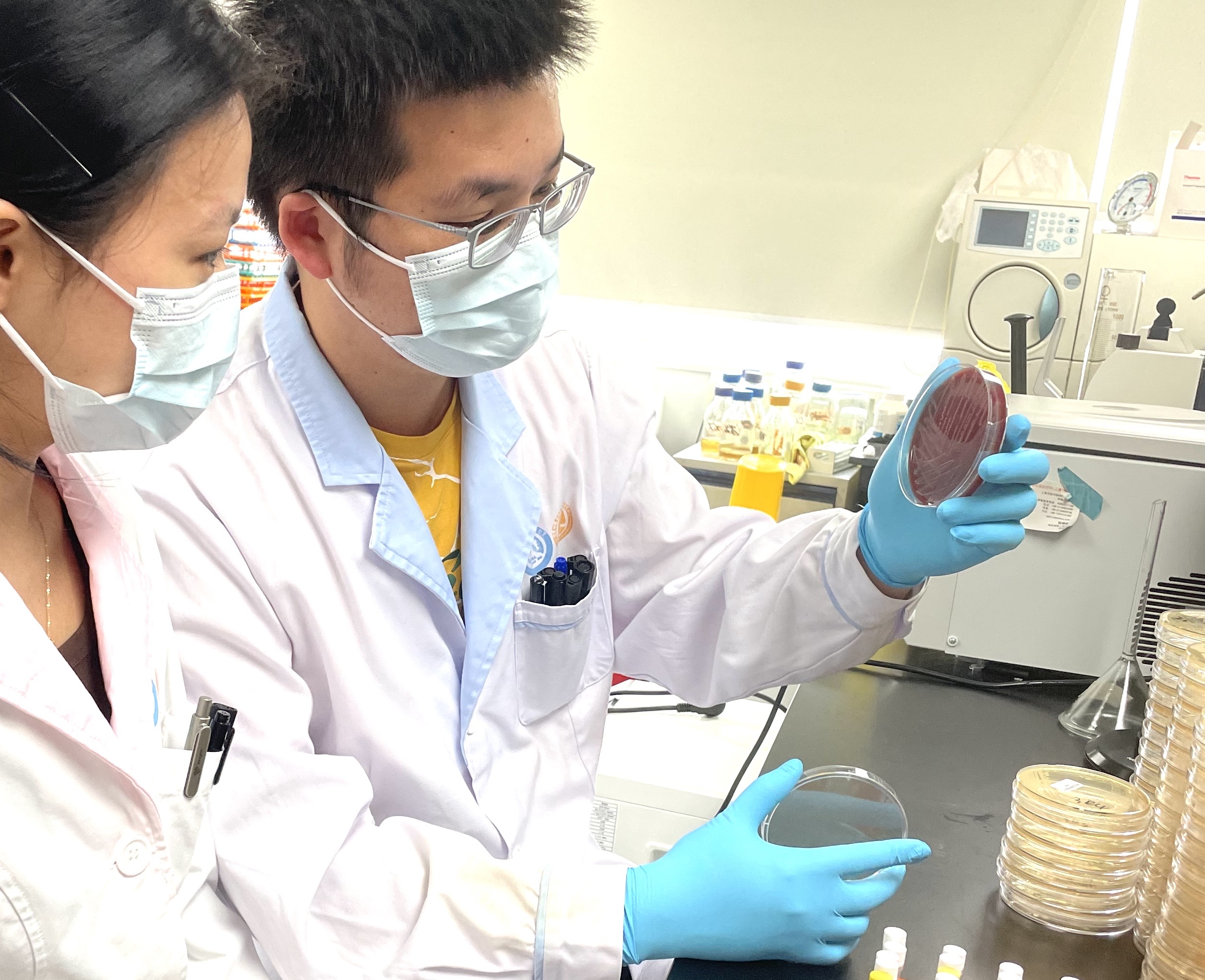Submitted by J. Hudson on Wed, 21/02/2024 - 16:14
Dr Ibrahim Xiaoliang Ba, Senior Research Associate here at the Department of Veterinary Medicine, was lead author on a recent publication that found a new hypervirulent strain of the E. coli bacteria that is resistant to carbapenems, a group of powerful antibiotics. The research published in Nature Communications showed that although there has been other problematic antibiotic resistant E. coli already identified, this new, more infectious strain named B5/H24RxC has been found to cause infection in two separate outbreaks in a children’s hospitals in China.
The collaborative project was made up of a team of researchers from the UK and China, and took four years to complete, which included an extra year extension due to the Covid-19 pandemic. The lead author was from The University of Cambridge with other co-authors from The University of Birmingham and Guangzhou Medical University in China.
The study was conducted using samples from hospitals across 26 Chinese provinces between 2017 and 2021 using 388 isolates from different clinical samples of urine, blood and sputum. The team found that ST410 was the most common strain of antibiotic resistant E. coli (CREC). Now, the discovery of a stronger and more infectious version of ST410 CREC, called ‘B5/H24RxC’, has been linked to two outbreaks in a children’s hospital in China. Lab tests showed the bacteria grew faster and was more infectious than other earlier E. coli bacteria already previously in circulation. Genomic analyses revealed that this new version of CREC is already globally spread, being identified in more than ten countries across five continents.
Dr Ba, Senior Research Associate from the Department of Veterinary Medicine at the University of Cambridge said, “Antibiotic resistance is a serious global public health problem. It requires concerted international collaboration to address the problem. The UK-China AMR initiative, which funded this project, allowed us to work closely with our colleagues in China to study transmission and resistance mechanisms in antibiotic-resistant bacteria in Chinese hospitals.
It is alarming to see the emergence of this new clone of highly infectious and resistant E. coli in China and elsewhere around the globe, which emphasises the urgent need for continued international collaborative efforts to address antibiotic resistance. We are extremally happy to see this work published, especially because it required great efforts from our Chinese colleagues to collect samples during the COVID pandemic.”
Professor Mark Holmes, Senior Author on the study and Head of Department of Veterinary Medicine said “Our exciting paper shows how a new AMR strain rapidly spreads throughout the world – This is an international problem. Antibiotic resistance doesn’t care about borders, and it is essential that we address this problem with international collaboration.”

